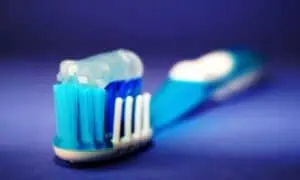
Survey Says…
The exhaustive study completed by the American Academy for Cancer Research surveyed just over 40,000 men and women for more than 10-years to monitor their health, diet, and, most importantly, results of colonoscopies. Just what exactly were the scientists looking for? They were most interested in two types of intestinal lesions that are often precursors to colon cancer – serrated polyps and conventional adenomas. Since the study followed along with all aspects of the participants’ health history, the researchers were also able to see how many people had a history of gum disease. The results were interesting.
- There was a 17% increased risk of having a serrated polyp if there was also a history of gum disease.
- There was an 11% increased risk of having a conventional adenoma if a history of gum disease was also present.
- If a participant lost more than four teeth, a common side effect of gum disease, there was a 20% increased risk of having a serrated polyp.
While these survey results certainly seem to point to a correlation between gum disease and colon cancer, researchers say that more studies are needed.
What Does Gum Disease Look Like?
There are some tell-tale signs of gum disease that all patients should be aware of. After all, early detection of gum disease is key to treating it effectively before it has a chance to cause bigger oral health or overall health problems. Some of the most common signs of gum disease are:
- Bad breath or bad taste that doesn’t go away
- Red or swollen gums
- Tender or bleeding gums
- Painful chewing
- Loose teeth
- Sensitive teeth
- Gum recession
If you experience any of these symptoms, schedule an appointment with your dentist in Asheboro .
How to Prevent Gum Disease
One of the best ways to protect your body against the potentially fatal side effects of gum disease is to avoid it in the first place. However, that’s not always possible thanks to genetics and age, two of the things that can affect someone’s likelihood of developing gum disease. This means it’s even more important to follow these tips from your dentist in Asheboro to do everything you can to prevent gum disease development.
- Brush your teeth twice a day
- Floss daily
- Quit smoking
- See your dentist at least every six months
If you have questions about gum disease and its link to overall health, schedule an appointment with your dentist.


 We’re nearing the two-year mark since the beginning of the COVID-19 pandemic, and while the virus attacks the respiratory system, it can also affect other areas throughout the body, including the mouth. Those who have contracted COVID-19 and recovered may have little to no lingering side effects. However, others may have what’s called “long-COVID” and continue to have lasting symptoms. In fact, according to your
We’re nearing the two-year mark since the beginning of the COVID-19 pandemic, and while the virus attacks the respiratory system, it can also affect other areas throughout the body, including the mouth. Those who have contracted COVID-19 and recovered may have little to no lingering side effects. However, others may have what’s called “long-COVID” and continue to have lasting symptoms. In fact, according to your 











